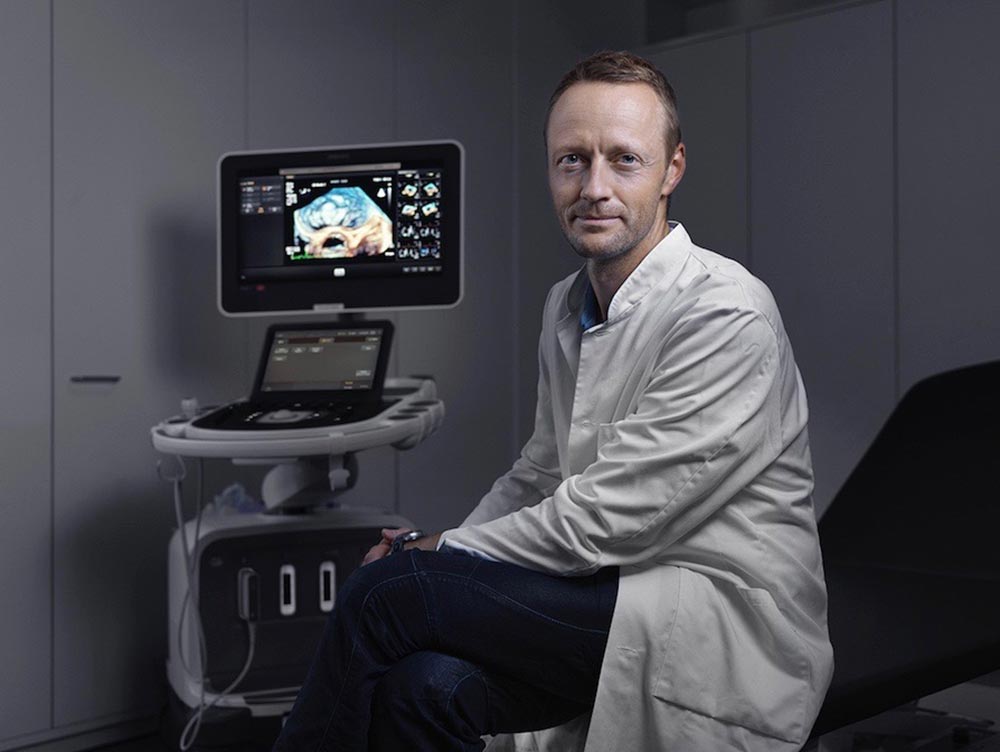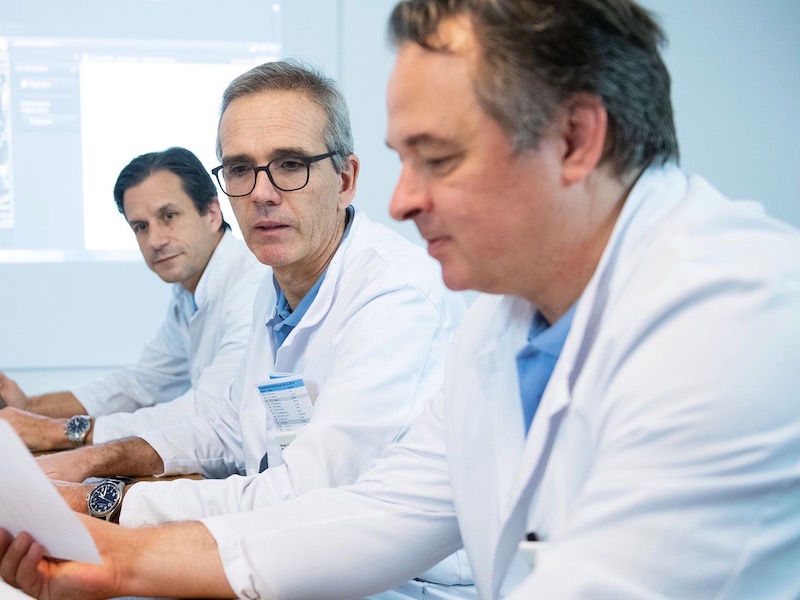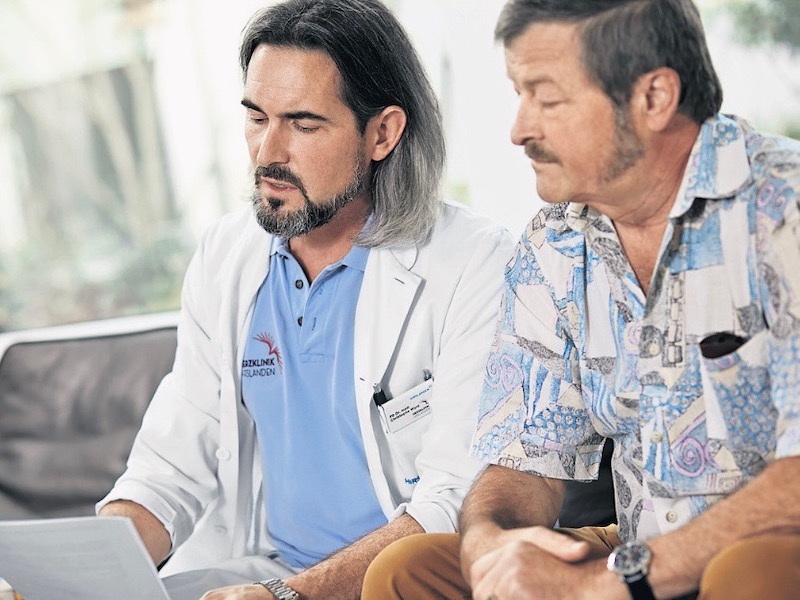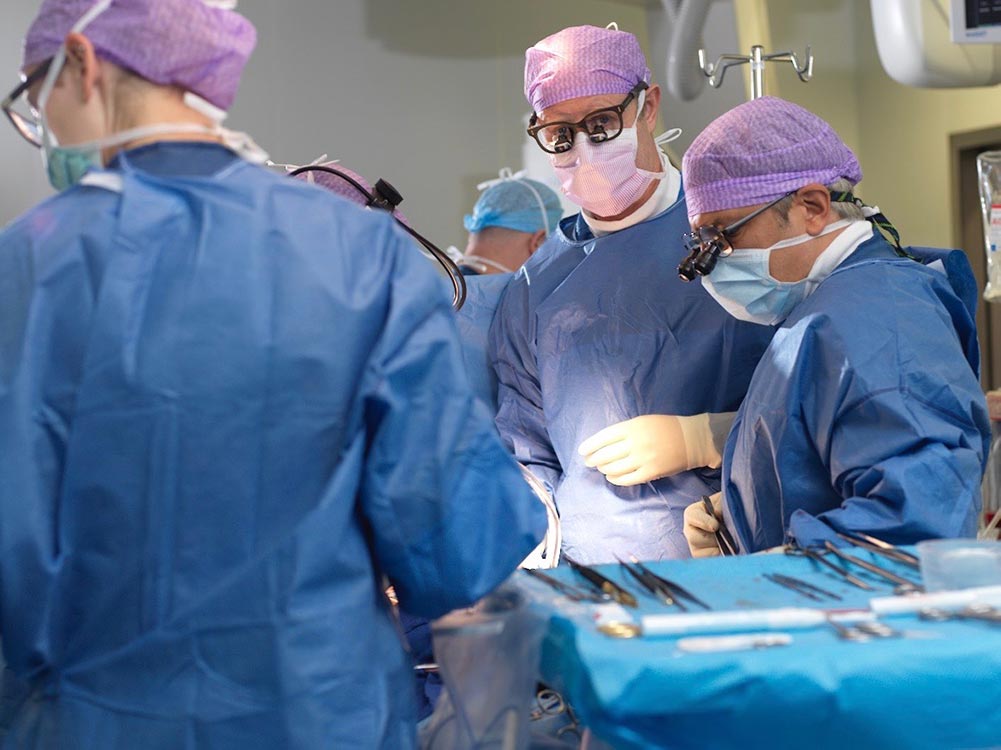Structural heart disease
05 January 2019
What are structural heart disease?
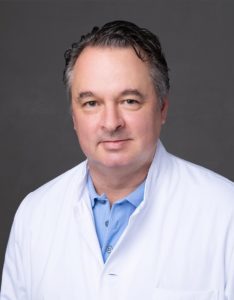
Prof. Dr. med. Peter M. Wenaweser - Interventional Cardiology - HerzKlinik Hirslanden
Structural heart disease refers to diseases of the heart that predominantly affect one of the four heart valves, i.e. the aortic, mitral, tricuspid and pulmonary valves. The most common structural heart diseases include aortic valve stenosis and mitral valve regurgitation. They usually occur in older people.
Aortic valve stenosis is a narrowing of the heart valve located in the aorta. The narrowing can be caused by both inflammation and calcification. The result is an overload of the heart muscle because the heart has to pump faster. In mitral valve regurgitation, the heart valve does not close properly and leaks. Structural heart disease can only be treated surgically.
What is the difference between a stenosis and an insufficiency?
Heart valves are functionally nothing more than a one-way valve. They regulate the blood flow in the heart in the right direction. The heart, as a blood pump, can only direct blood flow correctly if the valves are functioning normally. A heart valve can become narrowed and obstruct blood flow for a variety of reasons. This is called valve stenosis. A heart valve can also leak, causing blood to be pumped back through it. This is called an insufficiency. There are also mixed forms in which a heart valve has a stenosis and an insufficiency at the same time, with varying degrees of severity.
What symptoms and complaints are typically experienced by patients with structural heart disease?
Many valve diseases can be endured for a very long time without symptoms. If symptoms are present, this is usually a sign of advanced disease. Certain valve diseases can cause symptoms similar to those of coronary heart disease, including chest tightness and pain. A slow onset of shortness of breath, which leads to a decrease in the ability to perform daily activities, can be another consequence. Patients with a severe narrowing of the aortic valve, known as aortic stenosis, often suffer a typical circulatory collapse, known as syncope. This is a brief loss of consciousness due to impaired blood flow to the brain. In the advanced stages of mitral regurgitation, symptoms may include shortness of breath, fatigue, fluid accumulation in the lungs, swollen legs and cardiac arrhythmias with atrial fibrillation.
More reports
Cardiac Imaging (Heart Imaging)
Techniques of imaging the heart (cardiac imaging): Imaging the heart (cardiac imaging) is indispensable for making a diagnosis....
HerzTeam: Experience is decisive
The experience of the heart team is crucial Stenosis and leakage of the heart valve are among the most common structural heart diseases. The...
Heart attack - Precious minutes
Every minute is precious in a heart attack The earlier a heart attack is treated, the higher the chance of survival and the...
Successful reconstruction of the tricuspid valve
Ernst Spalinger has confidence in his heart again. After the operation on the tricuspid valve, fear and shortness of breath are blown away....
Minimally invasive heart surgery
Prof. Dr. Jürg Grünenfelder, specialist in cardiac and thoracic vascular surgery at Herzklinik Hirslanden, is a specialist in minimally invasive...
Gentle heart surgery with the DaVinci robot
Interview with Prof. Dr. med. Jürg Grünenfelder The DaVinci surgical robot is mainly known from the field of prostate surgery. In the...
All specialists at the Heart Valve Center of Herzklinik Hirslanden
Prof. Dr. med. ROBERTO CORTI
Interventional Cardiology
Prof. Dr. med. JÜRG GRÜNENFELDER
Cardiac Surgery
MD. THIERRY AYMARD
Cardiac Surgery
PD Dr. med. PATRIC BIAGGI
Cardiology | Imaging
Prof. Dr. med. OLIVER GÄMPERLI
Interventional Cardiology
PD Dr. med. DAVID HÜRLIMANN
Cardiology | Rhythmology
Dr. med. IOANNIS KAPOS
Cardiology | Imaging
MD. SILKE WÖRNER
Cardiology | Imaging
Prof. Dr. med. GEORG NOLL
Cardiology | Prevention
MD. IVANO REHO
Cardiology | Aortic Aneurysm
PD Dr. med. (H) DIANA RESER
Cardiac Surgery
Prof. Dr. med. JAN STEFFEL
Cardiology | Rhythmology
Prof. Dr. med. PETER M. WENAWESER
Interventional Cardiology
Prof. Dr. med. CHRISTOPHE WYSS
Interventional Cardiology
